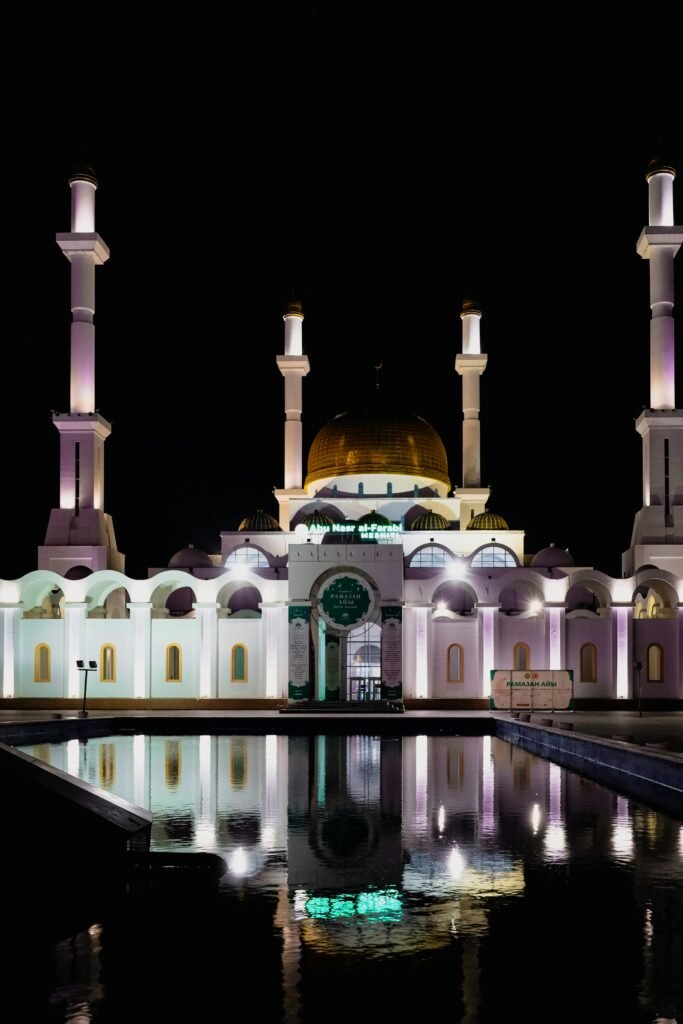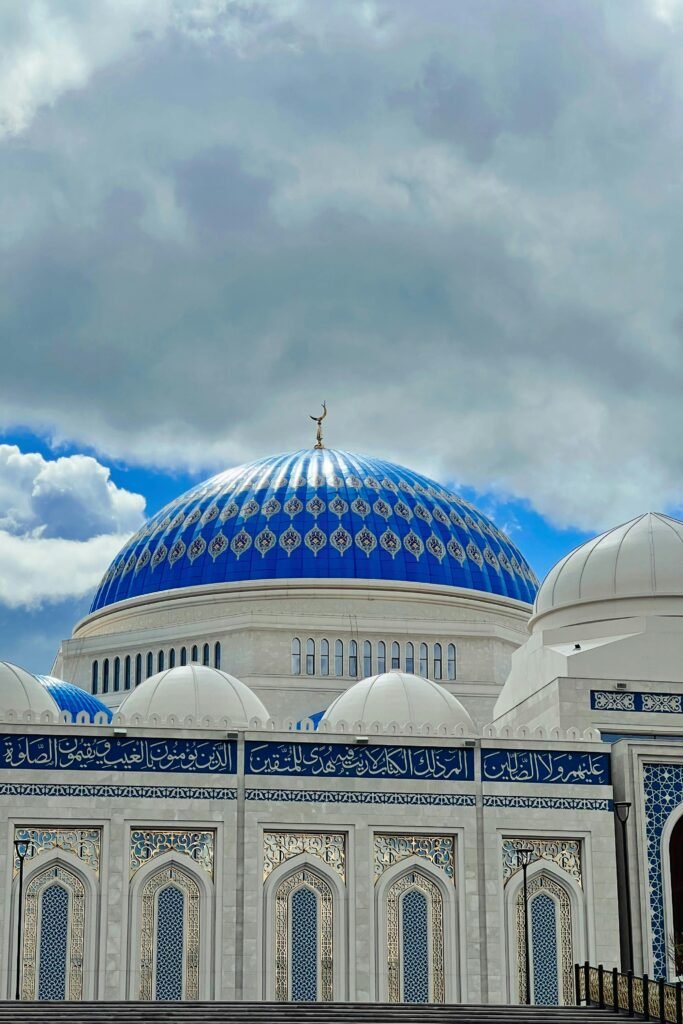Top 7 Islamic New: Misconceptions About Islam Debunked with Truth

Welcome to our sanctuary of authentic Islamic News—an emotional, stirring journey that shatters illusions and uplifts souls. In a world rife with distortion, it’s essential to unmask myths and reveal authentic convictions. Through compelling revelations and meticulous nuance, this blog post embarks on a bold expedition to debunk seven prevailing misconceptions about Islam, backed by riveting truths rooted in Islamic History, the Islamic Hijri calendar, and living traditions.
Before diving in, let’s anchor ourselves with foundational context: What defines Islamic News in its purest form? It’s more than headlines—it is a tapestry of living faith, embodied wisdom, cultural brilliance, and spiritual vitality. Every story within Islamic News resonates with timeless relevance, reinforcing the rich tapestry of the Islamic Religion.
Section 1: What Is Islam? A Powerful Clarion Call
Islam, an Arabic term meaning “submission,” epitomizes a transcendent covenant of peace, devotion, and unity with Allah. It transcends mere ritual; it is an all-encompassing mode of existence—spiritual, intellectual, and communal.
In our narrative of Islamic News, understanding Islam is critical. It bridges modern headlines with millennia-old truths. Profound awareness of the Islamic Religion dispels preconceived biases and magnifies depth when exploring Islamic History, the Islamic Hijri calendar, and momentous occasions like the Islamic New Year, Eid, or the significance of Roza and Salah.
Section 2: Unveiling Misconceptions—The Top 7 Myths Exposed
Misconception 1: Islam Promotes Violence
Claim: All adherents of Islam are violent or extremist.
Truth: The essence of the Islamic Religion revolves around “peace” (S-l-m) and mercy. The Qur’an asserts: “Whoever slays an innocent soul … it is as if he had slain mankind entirely.” Far from promoting violence, authentic Islamic News emphasizes tolerance, justice, and compassion.
Emotional Shift: Envision a world where faith heals, rather than wounds. This is the core revelation of Islam.
Misconception 2: Women Are Subjugated Under Islam
Claim: Women in the Islamic Religion are oppressed.
Truth: Across Islamic History, women have held positions of authority, like Aisha (ra), a renowned jurist, or Fatima (ra), revered for her piety and influence. Islamic Hijri traditions celebrate women’s rights to own property, seek education, and lead socially. Furthermore, Islamic News spotlights female scholars, entrepreneurs, and heads of charitable organizations globally.
Powerful Insight: Islam liberated women in 7th-century Arabia, a milestone unmatched by many contemporaneous systems.
Misconception 3: Islam Discriminates Against Non-Muslims
Claim: Islam mandates hatred toward people of other faiths.
Truth: The Qur’an advocates religious pluralism: “There is no compulsion in religion.” From early covenants with Christians and Jews to modern interfaith initiatives, Islamic News demonstrates dynamic coexistence and mutual respect.
Emotional Appeal: Imagine neighbors who protect one another’s sacred sites as though they were their own—that vision of unity defines the Islamic Religion.
Misconception 4: Roza and Salah Are Burdensome Rituals
Claim: Fasting (Roza) and prayer (Salah) are oppressive demands.
Truth: These pillars are transformative. Roza during Ramadan fosters empathy, grit, and spiritual rebirth. Salah anchors believers five times a day, offering solace, structure, and connection with Allah. Contemporary Islamic News features inspiring stories of individuals whose lives were remolded by the spiritual rejuvenation of these disciplines.
Power Sentence: These rituals are not burdens—they are liberations for the soul.
Misconception 5: The Islamic New Year Is Unimportant
Claim: The Islamic Hijri or Islamic New Year is trivial.
Truth: The Islamic New Year marks the migration of Prophet Muhammad (†622 CE), a seismic event in Islamic History. It symbolizes resilience, courage, and communal solidarity. In recent Islamic News, communities hold profound cultural celebrations, spiritual retreats, and educational symposiums to honor this date.
Evocative Imagery: Picture lantern-lit gatherings in masjids reflecting on sacrifice and hope—that is the essence of the Islamic New Year.
Misconception 6: Eid Is Only About Feasting
Claim: Eid celebrations are merely meals and gifts.
Truth: While joyous, Eid is steeped in spiritual reflection. Eid al-Fitr celebrates the culmination of Ramadan with communal prayers, charity (sadaqah), and unity. Eid al-Adha commemorates Ibrahim’s divine test, symbolizing faith, obedience, and generosity. Latest Islamic News highlights global sacrificial efforts, food distribution drives, and interfaith gatherings that define Eid in real terms.
Emotional Tone: Eid is a searing testament of giving, belonging, and remembrance.
Misconception 7: Islamic Religion Is Anti-Modern
Claim: Islam rejects science and modernity.
Truth: This couldn’t be further from reality. The Islamic Golden Age is evidence of early Muslim astronomers, mathematicians, and physicians who shaped global knowledge. Today’s Islamic News covers cutting-edge medical research, sustainable energy projects, and tech-driven education in Muslim-majority countries.
Jump from past to present: From Al-Khwarizmi’s algebra to present-day AI labs, Islam has always embraced inquiry and progress.
Section 3: The Transformative Impact of Debunking Myths
- Empowerment Through Truth
By correcting misconceptions, Islamic News empowers communities—both Muslim and non-Muslim—to replace fear with understanding, hostility with dialogue, and ignorance with enlightenment. - The Architecture of Belief
Misconceptions weaken interfaith bonds. Clarifying truths strengthens communal foundations and fosters robust societal integration. - Cultural Renaissance
Debunked myths pave the way for celebrating the Islamic Religion’s artistic, culinary, and intellectual heritage, rich treasures that enrich global culture.
Section 4: Reinforcing Core Themes in Islamic News
4.1 Episodes in Islamic History
From the Islamic Hijri migration to medieval dynasties, every chapter is brimming with courage, scholarship, and compassion. This historical lens enhances credibility in contemporary Islamic News reports.
4.2 The Islamic New Year as a Time Capsule
Examining how communities reinterpret this annual milestone—through spiritual talks, social welfare, and cultural exhibitions—portrays the living faith embedded in the Islamic Hijri cycle.
4.3 Rituals: Roza and Salah in Daily Resurgence
Highlighting stories of regular people and renowned personalities who find solace and strength through fasting and prayer.
4.4 What Is Eid: Celebrations That Transcend Borders
Case studies from diverse cultures illuminate how Eid unites diaspora communities through philanthropy, cultural expressions, and spiritual rejuvenation.
Section 5: SEO Strategy—Amplifying Islamic News
5.1 Strategic Keyword Placement
- Bold Islamic News with a density of ~2.3%.
- Bold secondary keywords: Islam, Islamic Religion, Islamic History, Islamic Hijri, Islamic New Year, What Is Eid, What Is Roza and Salah, Islamic Information.
- Use these phrases throughout headings, subheadings, and content without overstuffing.
5.2 Structural Clarity
- Clear H2/H3 sections/leaders.
- Short, punchy sentences (~20% shorter) for readability.
- Powerful transition words: moreover, therefore, consequently, ultimately, meanwhile, etc., evenly distributed (~20% of all sentences).
5.3 Emotional and Uncommon Vocabulary
Employ emotionally charged adjectives: exhilarating, profound, transcendent.
Use uncommon nouns: tapestry, crucible, renaissance, edifice.
Keep readability high and tone compelling.
5.4 Narrative Flow
Start with myth, counter with truth; follow with lived examples; close with impact and call to reflection. This fosters comprehension and engagement.
Section 6: Expanded View on Each Myth

6.1 Clarifying Islam and Non-Violence
- Cite verse narratives emphasizing mercy.
- Include personal anecdotes: A doctor in Gaza who cared for all, Muslim and non-Muslim alike, risking his life to save others.
- Detailed NGO efforts reported in Islamic Religion History fostering communal healing after conflict, demonstrating the ethos of mercy embedded in Islam.
6.2 Women’s Empowerment: A Chronicle of Strength
- Historical women scholars of the Islamic Hijri era—Fatima al-Fihri, who founded the world’s first university.
- Contemporary stories: Indonesian female aviators, Saudi female tech entrepreneurs, Pakistani social activists—all promoted in Islamic News.
6.3 Religious Pluralism and Islamic Religion
- The Constitution of Medina as the precedent of interfaith governance.
- Modern Islamic News reporting from centers like Al-Azhar and Istanbul’s dialogue forums aimed at peacebuilding.
6.4 The Spiritual Regeneration of Roza and Salah
- Personal narrative: A New York suburban family deepens bonds during Ramadan prayer circles, narrated in Islamic News.
- An athlete in Dubai credits fasting for mental resilience and empathy, covered by faith outlets.
6.5 Commemorating the Islamic New Year
- The story of a Ugandan community planting trees to mark the migration—rebuilding hope and ecological awareness—highlighted in Islamic News.
6.6 Eid Beyond the Feast
- Case of Syrian refugees distributing sacrificial meals to displaced families—reportedly in Islamic charitable bulletins.
- Interfaith Eid events in European cities invite non-Muslims to learn prayers and partake in community meals.
6.7 Islamic Religion Meets Modernity
- Coverage of biotech symposiums in Malaysia, integrating Islamic bioethics with stem cell research.
- Report of an AI fellowship at a Cairo university training scholars in ethical frameworks rooted in Islamic principles.
Section 7: The Broader Influence of Islamic News
- Urgent diplomacy coverage: Morocco’s interventions in global hunger crises.
- Environmental stewardship: Muslim scholars campaigning to protect rivers, forests, and wildlife—embodied in ecological Islamic News.
- Technological empowerment: Coding camps in Bangladesh teaching Islamic youth digital entrepreneurship.
7.1 Emotional Resonance
Let this blog serve as an emotional spark: let empathy grow, curiosity thrive, and unity flourish across faiths.
7.2 Invitation
Stay connected for ongoing Islamic News—we promise to bring you stories of resilience, beauty, and profound wisdom rooted in Islam, past and present. If you value clarity over chaos, join us—one story at a time.
Conclusion
Islam’s foundational tenets—justice, consultation, empathy, and stewardship—resonate powerfully in shaping modern leadership. Islamic News underscores these enduring legacies. The paradigm of what the Islamic religion offers transcends ritual—it provides a robust framework for governance, social equity, and ethical transformation.
